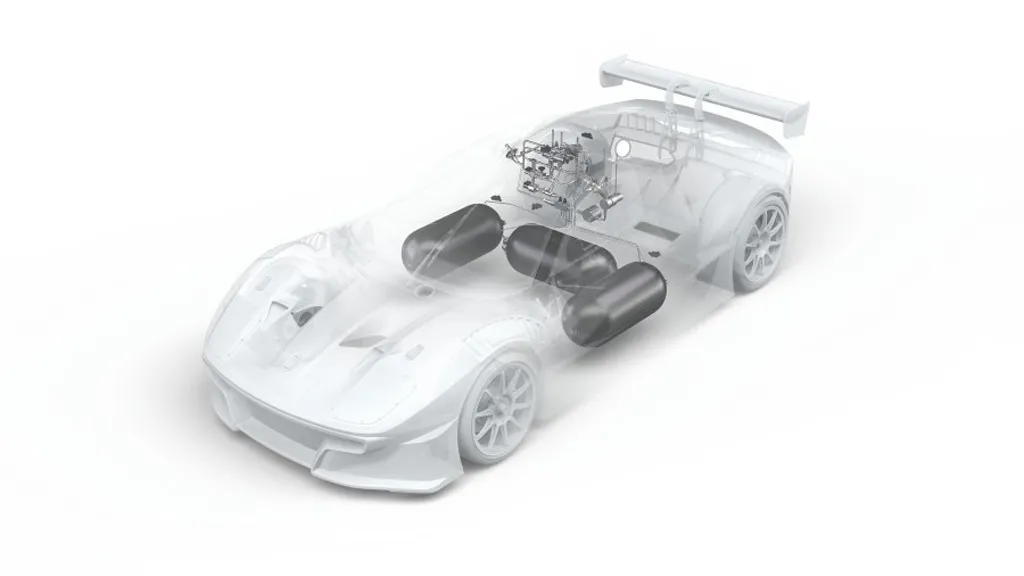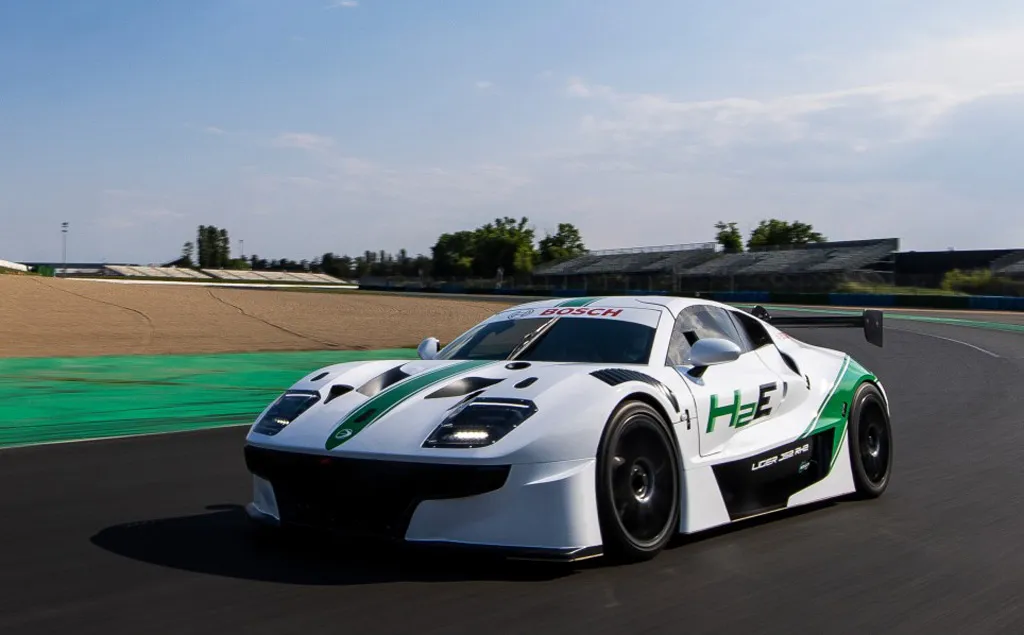The use of internal-combustion engines powered by hydrogen as a means to reduce carbon emissions continues to gain steam, with more and more companies rolling out proofs of concept.
The latest is automotive supply giant Bosch, which worked closely with French race car constructor Ligier to build a prototype race car powered by a hydrogen engine. Bosch sees the technology potentially finding a future in motorsports as well as in high-performance road cars, according to its head of engineering, Johannes-Jörg Rüger.
The prototype race car is based on Ligier’s current JS2 R chassis and uses a twin-turbocharged 3.0-liter engine rated at 594 hp. It has been tested at temperatures ranging from 32-95 degrees, and at speeds of up to 174 mph.
According to Rüger, this testing was not only important for the powertrain but also for the high-pressure hydrogen storage tanks. The tanks store hydrogen in a gaseous state, at pressures of more than 10,000 psi, and Bosch is also investigating the use of higher density liquid hydrogen storage.

Ligier JS2 R race car powered by Bosch hydrogen engine
Bosch and Ligier first presented a static version of the hydrogen-fuel race car during the 2023 24 Hours of Le Mans. During this year’s race, which runs the weekend starting June 15, the two companies will demonstrate the race car on Le Mans’ Circuit de la Sarthe.
Alpine will also demonstrate its Alpenglow Hy4 hydrogen-fuel hypercar concept at Le Mans, while the ACO, which is the organizer of Le Mans and is aiming to introduce a class for hydrogen-powered race cars, will demonstrate its own MissionH24 hydrogen-electric concept at this year’s Le Mans.
The concept of a hydrogen engine isn’t new. BMW in 2006, for example, presented a 7-Series with a V-12 that could run on hydrogen. The main modifications involved the fuel storage and fuel injectors.
There are drawbacks, though. Besides the lack of a steady supply of hydrogen as an available fuel source, hydrogen engines emit harmful nitrogen oxides. However, there are ways to minimize this, such as using urea-based selective catalytic reduction found in diesel engines. Hydrogen can also be produced without emissions by using renewable energy to split water into hydrogen and oxygen, something that Porsche is also examining in the area of synthetic fuels.
